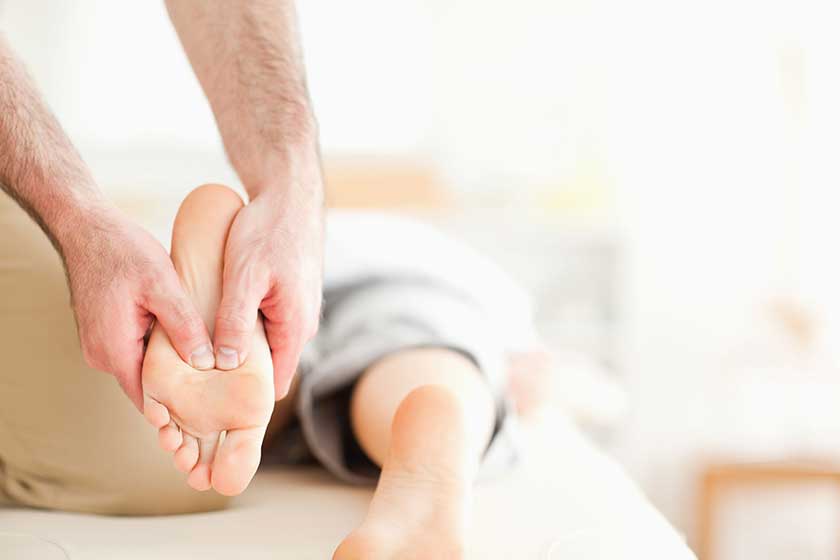What are the benefits of reflexology?
Although reflexology is not used to diagnose or cure health disorders, it is widely used to complement traditional medicine and treatments.
Josephine Jolly, a volunteer reflexologist at Footprints Day Centre at St John of God Murdoch Hospice, says the practice can provide pain management but is also particularly beneficial to those who are experiencing great stress in their lives.
“In many cases, reflexology can affect a broad range of concerns from digestive issues to headaches, and to give relief to those suffering from constant pain,” Ms Jolly says.
“Patients find pain in their feet, legs and other parts of the body diminishes after sessions, but their anxiety levels are also lower.
“Reflexology helps the whole body to relax so for the terminally ill, and the family members who help care for them, reflexology can offer a break from the unrelenting stress.”
Some people say they go into a deep relaxation or a stage between wakefulness and sleep where they can still hear what is going on but are almost asleep. Some sleep and some drift in and out of sleep.
Origins of reflexology
The origins of reflexology date back to ancient Egypt by tomb inscriptions found in 2330 BC.
In 1917, Dr William H. Fitzgerald pioneered the discovery that the application of pressure on particular areas of the feet could affect different parts of the body.
There are different styles of reflexology, including the most commonly used Ingham method in which the thumb (or finger) bends and straightens while maintaining constant pressure across the area of the foot.
The focus is on relaxation and balancing the systems of the body.
Is reflexology for you?
Ms Jolly says people should try reflexology to see if they find it beneficial.
“You don’t have to believe in it for it to work, as long as you are open to the idea of it and just have a willingness to try," she said.
“In my experience, the reactions are always positive.”
Please consult your GP before having reflexology and be advised people with deep vein thrombosis, acute infection, who have suffered a stroke or are experiencing unstable pregnancy are recommended not to have reflexology.

